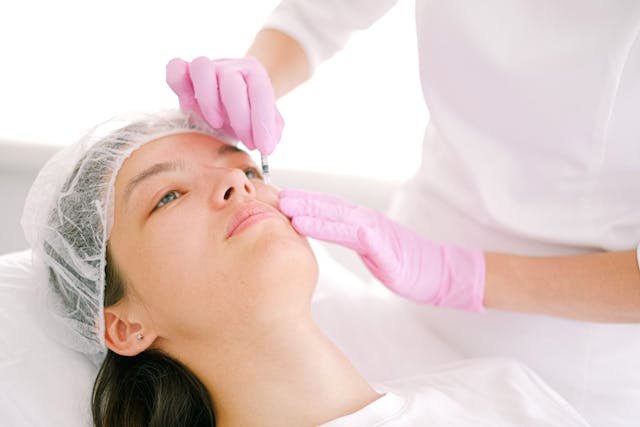The impact of Botox treatments goes beyond just smoothing out wrinkles and creating a more youthful appearance. There is a deep connection between physical appearance and mental well-being that is often overlooked. Research has shown that when people feel better about how they look, their self-esteem, social confidence, and overall life satisfaction improve significantly.
Studies have revealed that cosmetic procedures, such as Botox, can lead to psychological benefits that extend beyond the surface level. Patients who undergo aesthetic treatments often report feeling a sense of enhanced self-worth, reduced distress, and shyness, as well as an overall improvement in their quality of life. This indicates that the effects of Botox can have a profound impact on an individual’s mental health and well-being.
One of the fascinating aspects of Botox treatment is the “facial feedback hypothesis,” which suggests that our facial expressions not only reflect our emotions but also influence them. By temporarily relaxing the muscles responsible for frowning, Botox can interrupt the cycle of negative emotional feedback, leading to improved mood and reduced anxiety. Research has shown that patients treated with Botox experience lower levels of anxiety compared to those receiving other treatments, indicating a direct link between Botox and emotional well-being.
The confidence boost that many patients experience after Botox treatment can have a ripple effect on various aspects of their lives. From feeling more comfortable in social situations to presenting themselves with greater assurance in professional settings, the psychological impact of Botox can enhance overall confidence and self-image.
Aging can present psychological challenges for many individuals, as changes in appearance can trigger feelings of anxiety and self-consciousness. Botox treatments offer a proactive way to address these concerns by smoothing out wrinkles and preventing new ones from forming. This sense of empowerment can help individuals feel more in control of the aging process and maintain their self-confidence as they navigate different stages of life.
The confidence gained from Botox treatments can lead to increased social engagement and improved overall quality of life. When individuals feel good about their appearance, they are more likely to participate in activities they previously avoided and engage authentically with others, leading to positive changes in their social interactions and relationships.
In addition to the aesthetic benefits, Botox has shown potential therapeutic applications for mental health conditions. Research has indicated that Botox injections may help reduce symptoms of depression and anxiety, even in patients who were not seeking cosmetic improvements. The psychological benefits of Botox may operate through various pathways, including improving self-image and directly affecting neurological processes related to mood regulation.
It is essential for individuals considering Botox treatments to have realistic expectations and work with qualified medical professionals. Optimal results come from subtle, natural-looking improvements that enhance facial features rather than dramatically altering them. When combined with healthy lifestyle habits and positive self-care practices, Botox can be a valuable tool for maintaining confidence and mental well-being.
The psychological effects of Botox treatments often extend beyond the physical results and can lead to long-term positive changes in thought patterns and behaviors. Many patients report that the initial improvement in self-image helps them maintain a positive mindset even as the effects of the treatment wear off, creating lasting psychological momentum.
The confidence boost from Botox treatments can inspire individuals to make positive changes in various areas of their lives, such as pursuing new career opportunities, improving fitness routines, or investing in personal development. This holistic approach to self-improvement reflects the interconnected nature of physical appearance, mental health, and overall life satisfaction.
Enhanced confidence from Botox treatments can have a significant impact on both professional and personal relationships. In the workplace, increased self-assurance can lead to more effective communication, greater leadership roles, and improved performance under pressure. In personal relationships, the confidence boost often translates to more authentic connections and increased comfort in social settings, leading to more fulfilling and engaging relationships.
Choosing to invest in Botox treatments can be an important act of self-care that signals a commitment to personal well-being. By addressing concerns about aging and appearance proactively, individuals can enhance their sense of personal agency and self-worth. When viewed as part of a broader self-care routine that includes exercise, healthy eating, and stress management, Botox treatments can contribute to overall well-being and a more positive approach to life.
In conclusion, the psychological benefits of Botox treatments go beyond just improving physical appearance. From enhanced self-confidence and improved social interactions to potential mental health benefits and increased life satisfaction, Botox offers a unique combination of aesthetic and psychological improvements. By understanding the complex connection between physical appearance and mental health, individuals can make informed decisions about Botox treatments that support both their physical and mental well-being.


